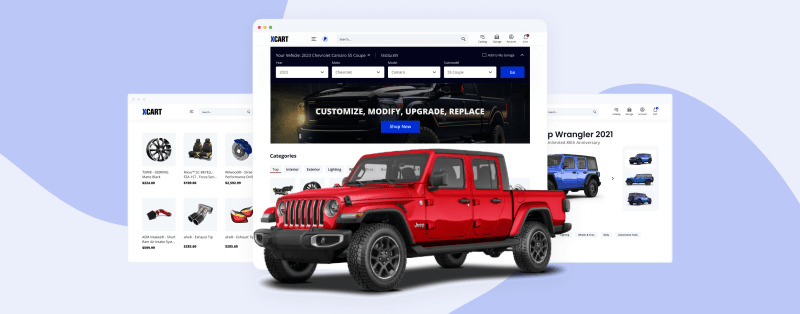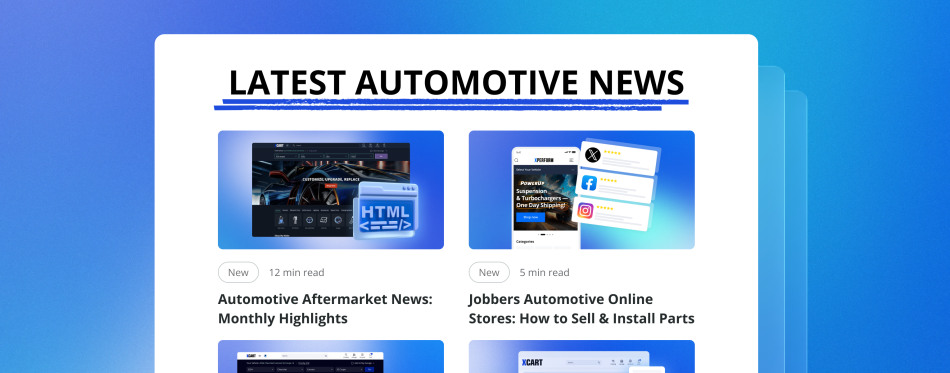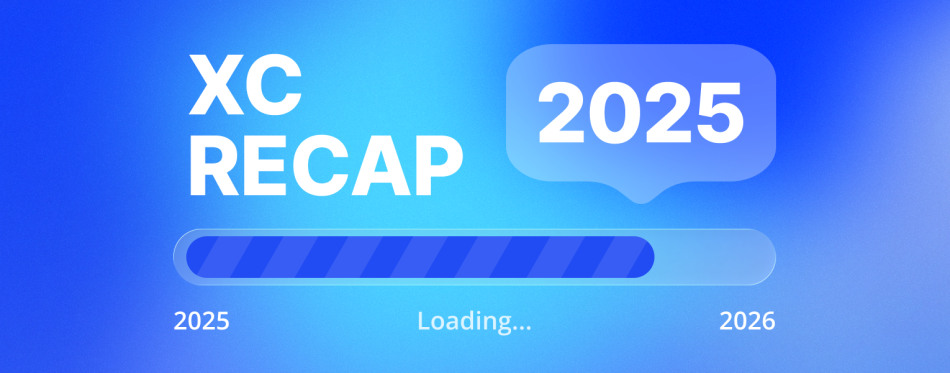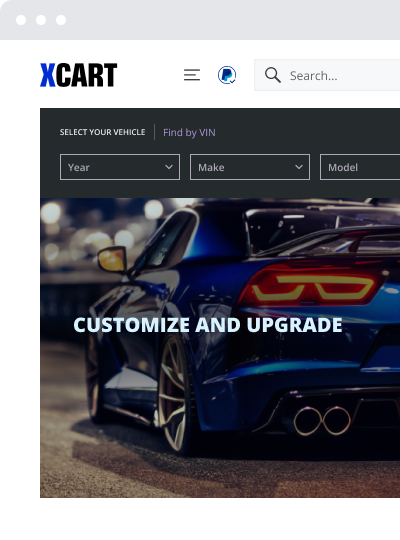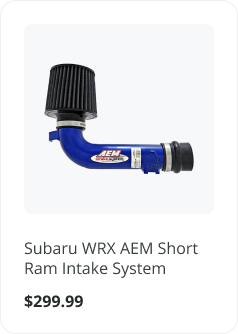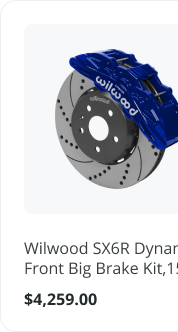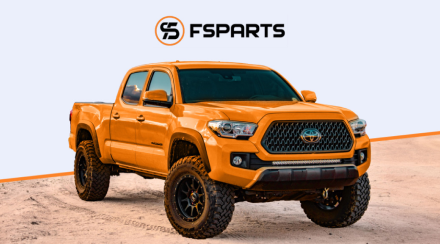Custom eCommerce Website Development for Automotive Stores: Pros & Cons (+ an Alternative)
If you are running an auto parts retail business, you are likely aware that staying ahead of the competition in this digital era can be quite challenging. The increasing penetration of the internet in consumers’ lives led to the increase in online sales of auto parts and accessories, subsequently impacting the size of the U.S. automotive aftermarket, which is forecasted to grow to $182.48 billion by 2026, as per Fortune Business Insights.
For an online auto parts seller to win this competition, it is crucial to provide a wide range of high-quality products at the most competitive prices, offer smooth and mobile-friendly website navigation experiences, and ensure your online store is accessible around the clock.
But what if the capabilities of your eCommerce website are too limited to expand product lines, handle the increased traffic, or add new functionality to meet the evolving business needs?
Growing and scaling your auto parts eCommerce business is a complex and multifaceted task, and if you opt for a cookie-cutter approach using non-customizable auto parts website builders, you might quickly get stuck.
In this blog post, we’ll shed more light on whether you need an online store tailor-made for you from scratch, consider the pros and cons of custom website development, and offer a wise alternative that will give you more room for creativity in website design and give the desired flexibility in adding the required integrations of your choice, without breaking the bank.
What Is a Custom eCommerce Solution? (and why you may think you need one)
A custom shopping cart solution is a software application built specifically to meet your business needs and goals, allowing you to adjust your website design, marketing actions, sales, and order fulfillment processes to your liking and integrate it with eCommerce and automotive-specific tools of your choice.
Unless businesses have in-house developers, they need to hire a dedicated development team to discuss the project and business specifics, work out an implementation plan, and stick to each step to have a unique custom eCommerce website coded from scratch.
7 Indicators Your Automotive Business Needs a Better eCommerce Solution
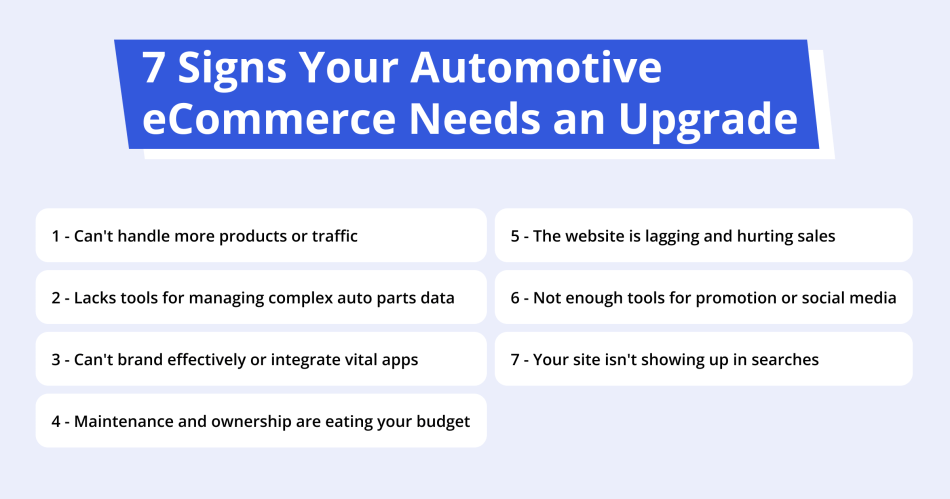
We’ve put together seven signals that your eCommerce platform is no longer a good fit for your rapidly growing automotive business:
- Scalability blockers prevent you from extending your product range due to catalog size limitations or managing website traffic spikes during promotions or high-demand periods.
- The lack of required functionality doesn’t allow you to streamline your catalog management with bulk import or category mapping while uploading complex auto parts data or fitment data tools.
- Few to no customization options make it impossible to communicate your brand effectively, improve website usability and navigation, or integrate your online store with the apps that help automate your business processes, such as PIM and ERP systems, warehouse distribution software, and drop shipping tools.
- Rising maintenance costs and high cost of ownership are eating out your budget.
- Slow page load and unstable website performance hurt your reputation and decrease your conversion rates.
- Ineffective marketing indicates that you may need diverse promotion tools, integrations with social media channels, and email marketing software.
- Low Google rankings indicate issues with indexing, which is a sign that your eCommerce platform is not ready for SEO.
If you experience at least three problems above, consider a more flexible eCommerce platform for your online store. But is a custom shopping cart solution the key to success here? Let’s find out.
The Pros and Cons of Having a Custom Automotive eCommerce Website
You may have been using a SaaS-based platform or a shopping cart plugin to back your auto parts eCommerce store for a while and were quite satisfied with its capabilities. However, as your business has grown, you’re considering a more customized automotive online store with extensive functionality and the ability to showcase your brand more authentically.
While this sounds like a good idea, before you decide on the custom site development path, you’ll want to weigh the pros and cons.
| Pros | Cons |
| ✔ full control over your website performance | ⤫ developing a website from scratch can be very time-consuming |
| ✔ authentic branding and unique website design | ⤫ finding a third-party developer agency with professional skills and affordable prices can be daunting |
| ✔ more opportunities to grow and scale your online business | ⤫ depending on the complexity of your project, the overall website cost can turn out high |
| ✔ user interface and marketing personalization | ⤫ overengineering your custom solution can lead to a slow website load |
| ✔ the opportunity to have the tools and features of your choice custom-coded to your preferences | ⤫ the maintenance costs can diminish the overall return on investment (ROI) over time |
One of the main advantages of having a custom eCommerce website is that you have complete control over it, can personalize the user interface the way you envision, and can add new features and tools based on where your company stands now and your long-term business goals.
For all the benefits mentioned above, there are also drawbacks when it comes to choosing custom website development for your growing store, as it will take a lot of coding, testing, and time. And let’s not forget the cost (which scales with the complexity of your project).
Each automotive business has unique needs and requirements, so it’s up to you to decide whether to have your website coded from scratch. But before making your final decision, consider a more cost-efficient yet powerful alternative to custom coding – moving from your eCommerce platform to a more flexible and scalable one.
A Customizable eCommerce Platform –a Cost-Saving Alternative to Custom Development
Regardless of your business growth stage, headless eCommerce can help you avoid your online storefront’s generic look and feel and make your eCommerce website more functionally efficient than with classic custom site development.
With an API-driven eCommerce solution, you can customize your online store how you see fit by combining the essential built-in eCommerce functionality with your business-specific tools and integrations.
The Essential Functionality of a Flexible, API-driven eCommerce Platform
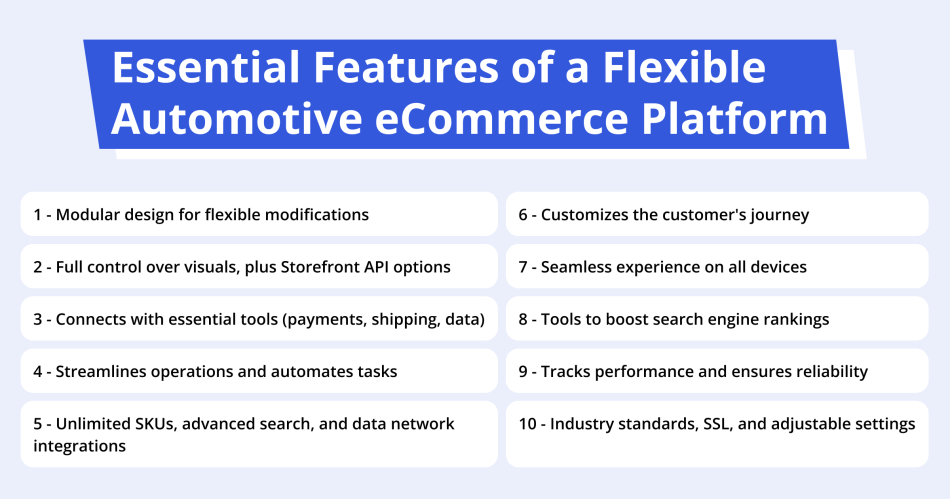
1. API access and adaptable architecture
Customizable, API-driven eCommerce platforms are structured modularly, allowing businesses to selectively modify and extend features without affecting the core system. These solutions can interact with and utilize the functionalities of an Application Programming Interface (API), enabling apps and services to communicate with other software systems and access their data and features.
2. Customizable website design
With robust design tools, business owners can tailor the visual appearance of their online stores, adjusting layout, color schemes, and typography. Additionally, with the Storefront API, you can design your own custom storefront using the tech stack of your choice, which facilitates the work for developers and reduces costs on the whole project.
3. A wide range of plugins and integrations
API-driven platforms offer a broad selection of self-made add-ons and third-party integrations with payment gateways, shipping software, marketing and SEO tools, auto parts data networks, warehouse distributors, and more.
4. Custom integrations tailored to your business needs
Custom integrations can be a secret weapon for businesses seeking a competitive edge in the online auto parts market. They allow online companies to streamline their day-to-day operations by automating manual tasks to keep their store running smoothly and in line with their business goals.
Integrations developed with unique business specifics in mind allow for managing inventory, shipping, tracking, order fulfillment, and customer interactions most effectively.
5. Efficient product data management
Flexible automotive eCommerce platforms provide the main five pillars of having an auto parts eCommerce catalog optimized for conversion, which are:
- limitless number of SKUs,
- product page customization options,
- advanced faceted search with automotive-specific selectors, such as Year/Make/Model or VIN Lookup,
- integrations with trusted auto parts data networks,
- dedicated web hosting to ensure all this sheer amount of data is loaded without a hitch
6. Flexible checkout process
Merchants can customize the checkout process to align with specific business requirements, incorporating custom fields or modifying the workflow.
7. Mobile responsiveness
Customizable eCommerce platforms ensure a responsive website design, adapting seamlessly to various screen sizes and providing a consistent user experience across desktop and mobile devices.
8. SEO configurability
With robust SEO tools, business owners can optimize their online stores for higher search engine rankings, establishing solid brand visibility.
9. Analytics tools
A powerful eCommerce platform offers the functionality to track key performance metrics, ensuring efficient page loading times, server response, and overall system reliability.
10. Security
Any robust eCommerce solution adheres to the eCommerce industry security standards, supporting an SSL certificate to encrypt and protect sensitive customer data, including login information or credit card numbers. A customizable platform also allows you to adjust your security settings, such as encryption, authentication, and access control.
Summing up: A customizable eCommerce platform can provide automotive businesses with a flexible and adaptable digital framework that meets their unique technical and operational requirements and tailors their online presence for car parts buyers.
Is X-Cart a Customizable eCommerce Platform?
The short answer is yes! X-Cart is a powerful, flexible, and easily customizable platform built specifically for the aftermarket parts retail sector. Our solution has all the essential features mentioned above, and not just them.
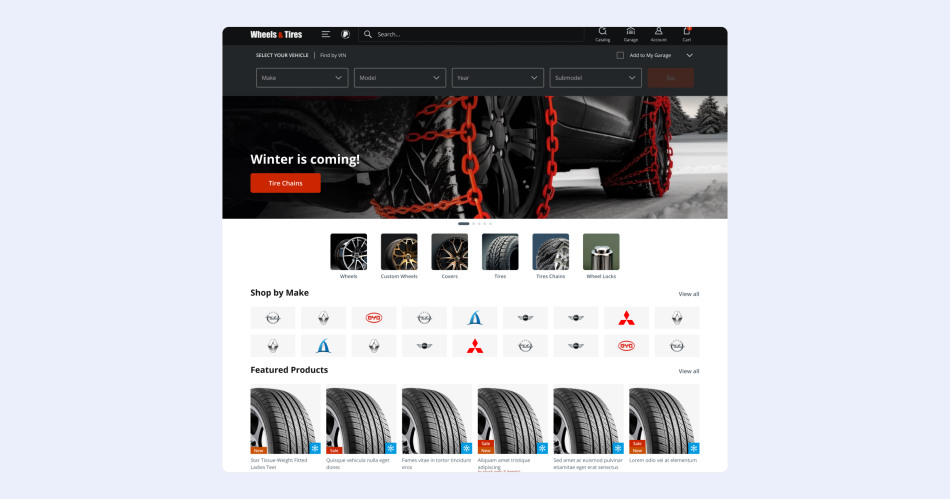
With X-Cart, you’ll get:
- Extensive product catalog: expand your product offerings and facilitate catalog management with accelerated bulk import and export options.
- API-driven integrations with SEMA Data, ASAP network, AutoSync, Turn 14 Distribution, Torqued Distribution and more to come shortly.
- eCommerce flexibility: combine the essential eCommerce functionality with robust integrations with third-party tools, and have your projects executed smoothly by the professional developer staff.
- Custom storefront created via X-Cart Storefront API as a more flexible alternative to using design templates.
- Top notch customer support: We offer training for our automotive clients, giving them four hours of onboarding calls with a customer success manager and a technical support engineer at no cost.
Combine these with unlimited customization options and get an eCommerce store that will adapt to the evolving needs of your growing automotive business hassle-free.
Need an Easily Customizable eCommerce Solution?
Final Thoughts
Building an eCommerce website from scratch may be a good idea if you have a specific vision for your online store that cannot be achieved using existing eCommerce platforms. However, remember that developing a custom eCommerce website is complex and time-consuming and requires significant effort and money.
Using a customizable and flexible eCommerce platform like X-Cart, on the other hand, can provide substantial benefits such as built-in eCommerce functionality, payment and shipping integrations, various marketing tools, and automotive partnerships. All of this comes with the ability to customize your website by adding additional features.
Finally, your specific business demands and goals will determine whether you develop your own unique eCommerce website or choose a customizable platform like X-Cart. It is critical to thoroughly analyze your alternatives and select the solution to help you reach your goals cost-effectively and efficiently.
About the author

